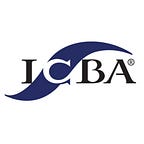By Rebeca Romero Rainey
While the nation grapples with the covid-19 pandemic and economic shutdown, nonbank companies are increasingly seeking to exploit a legal loophole allowing them to access the federal deposit-insurance safety net while skirting regulatory oversight. This growing trend violates the longstanding U.S. separation of banking and commerce while leaving a dangerous gap in safety and soundness oversight. Fortunately, Congress is debating legislation that would close this loophole for good.
Global e-commerce giant Rakuten recently joined tech firms such as Square and Nelnet in applying to form industrial banks. This obscure banking charter originated in 1910 for financial entities with a mission to serve industrial workers, but interest is spiking today as more companies seek access to federal deposit insurance without the oversight that applies to full-service banks.
In the current era of big data, technology conglomerates, and artificial intelligence, the risk associated with this legal loophole is greater than ever. Rakuten — a massive conglomerate known as the “Amazon of Japan” — and other firms are applying for deposit insurance under the obscure industrial bank charter because it allows them to avoid the legal restrictions and enhanced oversight of the Bank Holding Company Act, or BHCA.
A loophole in that law allows companies to own or acquire industrial banks, also known as industrial loan companies or ILCs, without being subject to Federal Reserve oversight or the BHCA’s prohibitions on engaging in commercial activities. Fed supervision normally allows the agency to monitor holding companies to ensure parent companies serve as a source of strength to their subsidiaries. Struggling parent companies could be tempted to drain their banks to prop themselves up, which would create systemic risks for the banking industry while exploiting its federal safety net.
The growth of industrial bank applications by commercial companies also raises the privacy concerns that await consumers if Washington allows other megafirms like Amazon, Google, or Facebook to exploit this loophole. These massive conglomerates would not only operate without adequate supervision — they could also further their unprecedented reach into the personal and financial lives of American consumers.
Big data already tracks Americans’ movements, networks, religious affiliations, political views, browsing histories, and shopping patterns, which are used for marketing and political purposes. Consumers and policymakers should seriously consider whether they want these entities to have access to their personal financial data that could be sold to third parties.
These breakdowns point to another flaw of the industrial bank charter — it violates the nation’s policy of separating commercial activities from banking. The U.S. deposit-insurance system was created to protect depositors of regulated banks, not commercial firms. The 1956 BHCA restricts permissible activities of bank holding companies, requiring them to divest ownership in any firms involved in nonbank activities. But while federal law prohibits all other banks from being owned by commercial companies, the industrial bank loophole persists.
Some might remember the community banking industry’s successful campaign against Walmart’s bid for an industrial bank charter in 2006. That effort, and another like it by Home Depot, failed. This ultimately led to a temporary FDIC moratorium on new industrial bank charters and a three-year moratorium imposed by Congress, both of which have expired. The current campaign by major commercial and tech firms to exploit the loophole is no different than previous attempts, and policymakers should respond accordingly.
Fortunately, Senate Banking Committee member John Kennedy (R-La.) has introduced legislation to close the industrial bank loophole. Community bankers strongly encourage Congress to advance this legislation in the Senate and House to ensure a level regulatory playing field, maintain the separation of banking and commerce, and avoid risks for the American taxpayer.
After all, there are alternatives. After withdrawing its industrial bank application, fintech SoFi has applied for a national bank charter that will subject it to the same rules and supervision that apply to other full-service banks and holding companies. Varo Money, a mobile payments provider, has successfully applied for deposit insurance and is close to becoming the first fintech with a national bank charter. Robinhood, a mobile investment service, applied for a full-service charter last year. In other words, fintechs can apply to form banks without skimping on oversight.
Any company that wishes to own a full-service bank should be subject to the same restrictions and supervision that apply to any other bank holding company. Amid rising efforts to exploit this risky loophole during a global pandemic and recession, the FDIC should immediately restore its moratorium on approving deposit insurance for industrial banks, which Congress should support while it advances the Kennedy bill to close the loophole permanently.
Rebeca Romero Rainey is president and CEO of the Independent Community Bankers of America, which issued a white paper titled “Industrial Loan Companies: Closing the Loophole to Avert Consumer and Systemic Harm.”
